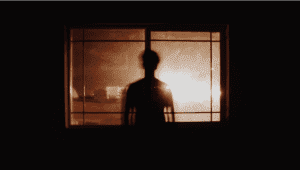Paul Rousseau
Charleston, South Carolina, United States
Foreword
 |
| Photo by Isai Ramos on Unsplash |
Mental illness is often marginalized by non-psychiatric clinicians, yet it causes as much suffering, if not more, than physical illness. I was a medical student completing a rotation in psychiatry when I observed the encounter described here. The patient had visited several community clinics and received little treatment other than prescriptions for sedatives, antidepressants, and antipsychotics. No one thoroughly addressed his mental illness, nor his anxiety regarding his sexual orientation. The attending psychiatrist provided me with a recording of the encounter for instructional purposes. This piece was taken from the first minutes of the encounter. Lamentably, little has changed in the intervening years. It seems mental illness is still inadequately treated by many non-psychiatric clinicians.
____
Psychiatrist: It has been quite a while since I have seen you. How have you been?
Patient: Oh dear Lord, let me tell you what happened. I hear pounding knocks on the door and scurry down the hall to the bedroom closet and grab a bathrobe because I was showering after a glorious BM, and I wonder, did I lock the front door? So I scramble to the kitchen and gather two butter knives since it could be two, or three, or five persons, all with nefarious intents—I have been so anxious, I only sleep two or three hours, and when I do sleep, I am in the death position, you know, covers to my chin, arms crossed over my chest, which is kind of foretelling, and I need a Librium,* not five milligrams but ten to fifteen milligrams, maybe even twenty since I am a chronic user—and I said user, not abuser. Anyway, if he or she or they have nefarious intents, would butter knives really protect me? Or should I slip out the bathroom window and shimmy to the ground and cower in the garage behind a workbench I never use? I mean, come on, look at my hands, they are soft as a baby’s butt, and my nails, perfectly trimmed, and—where was I—oh yeah, call the police, but there is no telephone in the garage.** So now I am alone without any means of communication, just me and the killer, or killers-to-be, and if I die—oh dear Lord, if I do, please make it quick—I’ll lie there for days, perhaps weeks, until the odor from decomposition alerts my neighbor that something is amiss and she telephones the police and they arrive and make the grisly discovery and notify my parents. But my parents are dead, and so is my sister, so there is no one to notify because I am gay and never married, and since there is no one, I would be buried in the vagabond’s cemetery amongst the drug addicts and homeless, or, if it is less expensive, cremated, and my ashes placed in a bag and tossed in the trash. And the sad part is, it would be like I never existed.
End Notes
- *A benzodiazepine commonly used in the 1970s and 1980s.
- **The emergency number 911 and cellular telephones were not in common use in 1978. Most people still depended on landline telephones.
- The patient died several years ago secondary to underlying medical disorders. However, the complete encounter was not described in an effort to protect his identity.
PAUL ROUSSEAU (he/him/his) is a semi-retired physician and writer published in The Healing Muse, Blood and Thunder, Hektoen International, Intima. A Journal of Narrative Medicine, The Human Touch, Pulse. Voices From the Heart of Medicine, Please See Me, Months To Years, (mac)ro(mic), The Maine Review, 433 Literary Magazine, Sunspot Literary Magazine, The Examined Life, Dr. T. J. Eckleburg Review, Tendon, and others. Nominated for The Best Small Fictions anthology from Sonder Press, 2020. Lover of dogs.
Winter 2022 | Sections | Psychiatry & Psychology

Leave a Reply